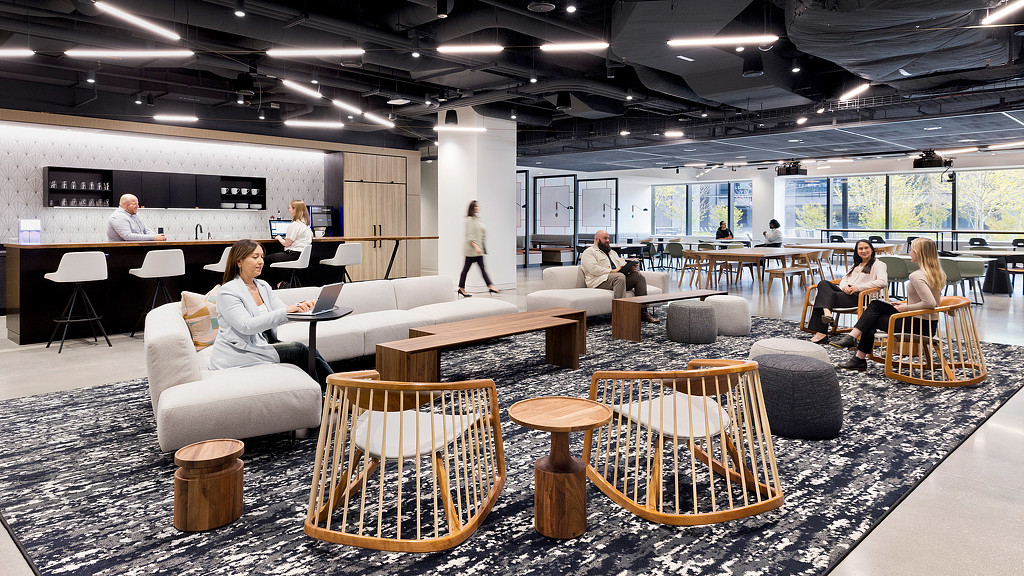Workspaces of the future will have a new spatial language – one that better reflects choice and flexibility.
Design has become a catalyst for change and the rising importance of flexible working has encouraged companies to rethink their portfolios of spaces particularly what purpose they are serving. The office workspace must provide a feeling of belonging to an increasingly remote workforce. In a different way to the traditional HQ the workplace must now adapt to become a place to visit less often but with a lot more meaning. Companies are now recognising that work has transitioned from a place to attend to a process to take part in and they have the opportunity to express, through their spaces and offices, what they truly stand for in order to attract and retain talent.
The erosion of a sense of local identity and has contributed towards a global sameness. However, localism and geo-cultural relationships can still give meaning to places. As globalisation brings about a sense of digital sameness around the world, it has highlighted the importance in designing physical workspaces spaces that engage and interact with their surroundings. By doing so, they have an opportunity to become more meaningful in the process of work. Where workspaces can respond to needs of their context and environment they will be able to enhance it.
NearU provide companies with the ability to enable their staff to find a productive environment in a location convenient to them, on flexible terms. Similar to how Uber allows people to completely rethink the need for car ownership and instead opt for on-demand access, innovative companies are paving the way for the future of work by applying the same principles to workspace access and provision. In doing so, they are able to better compete in the war for talent and offer employees desirable choice and flexibility, reducing commute times, carbon emissions and increasing productivity.
Working from home has its comforts but in all seriousness it doesn’t necessarily suit all types of tasks but neither does the traditional office. Being confined to wherever we call home has exposed the cracks of inequality and even worse invited our colleagues into places we would have been more comfortable not sharing. Companies will need to offer environments that enable a bigger range of choice, inclusivity and a wider perspective of what work is, how and where it can be done. Work has changed from a place that we go, to a thing that we do, giving the access and provision of workspaces license to become driven by values, collaboration and innovation.
